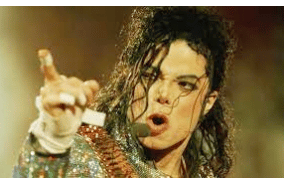Billboard
A month after they pulled the alleged “impersonator” songs from the internet, the estate and Sony are ending a case that accused them of false advertising.
Michael Jackson’s estate and Sony Music say they have reached a settlement to end a years-long lawsuit that claimed they violated false advertising laws by releasing a posthumous album featuring songs sung by “a Jackson impersonator.”
A month after pulling the disputed tracks (from the 2010 album Michael) off streaming platforms, Sony and the estate said Wednesday that both they and the plaintiffs had agreed to formally end the lawsuit. The deal came as the two sides were awaiting a decision by the California Supreme Court, which heard arguments on the case in May.
“Regardless of how the Supreme Court may rule, the parties to the lawsuit mutually decided to end the litigation, which would have potentially included additional appeals and a lengthy trial court process,” Sony and the estate said in a joint statement to Billboard, adding that removing the songs was “the simplest and best way to move beyond the conversation associated with these tracks once and for all.”
Vera Serova, the woman who filed the lawsuit over the Michael tracks, confirmed that the case had been “amicably resolved” but declined to comment further. Neither side provided any details on the terms of the agreement, including whether any money exchanged hands or what would happen to the disputed songs in the future.
As soon as Michael was released a year after his death, fans and even some family members questioned whether three of its tracks – “Monster,” “Keep Your Head Up” and “Breaking News” – were actually sung by the King of Pop himself. The songs were produced and recorded by Jackson’s friend Eddie Cascio, who made assurances that it was Jackson behind the microphone.
That controversy turned into a lawsuit in 2014 when the estate and Sony were hit with a proposed class action claiming they had violated California state consumer protection laws by labeling the songs as “Michael Jackson” tracks when they had really been performed by someone else.
The case spent years working its way through the courts. A trial judge initially allowed it to move forward, ruling that Sony and the Jackson estate potentially violated the law. But a state appeals court later reversed the decision, ruling that free speech protections applied to how the Michael tracks were labeled and dismissing the case.
Before Wednesday’s settlement, the lawsuit had been pending before the California Supreme Court, awaiting a ruling for more than two years.
At the high court, Serova argued that Sony didn’t have a First Amendment right to mislead consumers about the album’s contents, calling the outcome “patently absurd” and warning of “perilous consequences.” Sony and the estate argued back that their decision to attribute the songs to Jackson had been protected speech made amid an “ongoing public debate,” not false labeling of a product.
Last year, Serova got a high-profile boost of support from California’s then-Attorney General Xavier Becerra, who filed a brief in the case arguing that her case should not be barred by free speech.
Read more https://www.billboard.com/pro/michael-jackson-sony-music-fake-vocals-lawsuit-settled/




